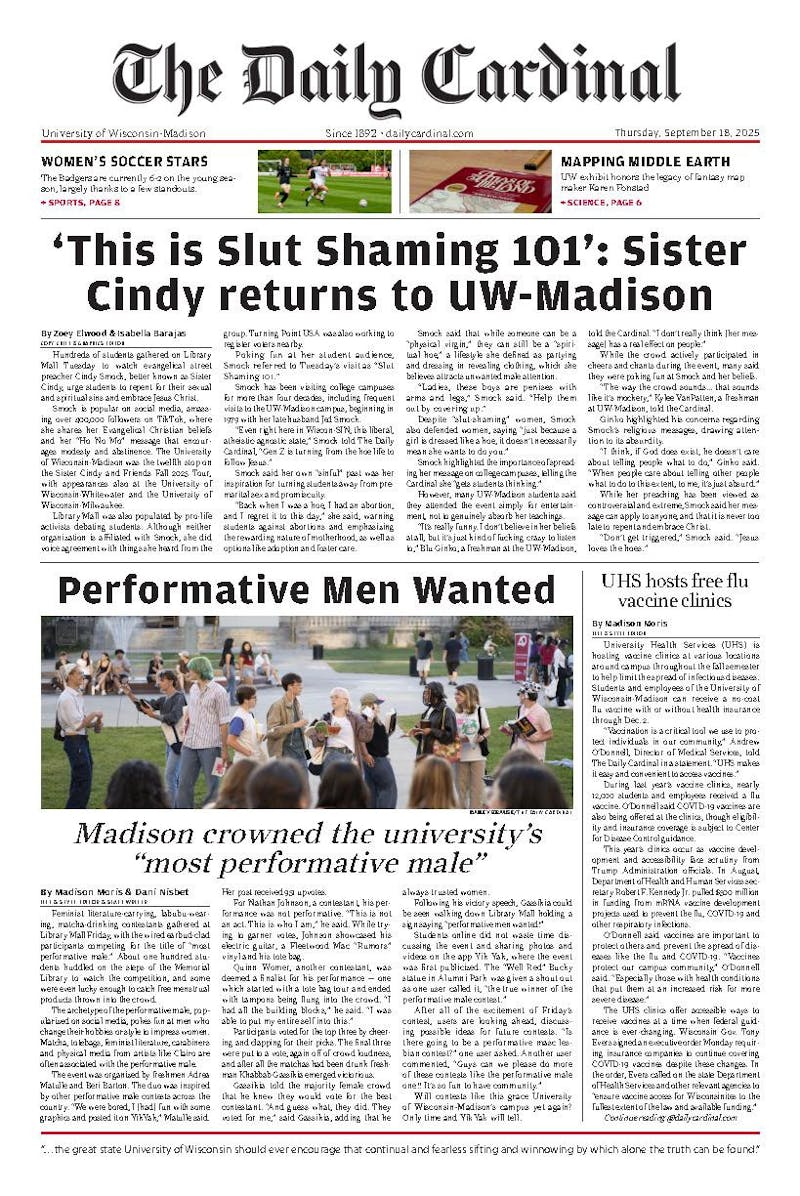The office space at 31 University Square is currently empty, save for a couch and a few desks and chairs. As Collegians for a Constructive Tomorrow prepares to move into this new home, the location's former tenant, the UW InfoShop, moves on to a new place and a new role in the community.
The UW InfoShop, which was formerly located in University Square, was declared ineligible for funding by the Student Services Finance Committee last year, leading to its move.
CFACT is in its third year of existence on the UW-Madison campus but only in its first year with funding from the General Student Service Fund. Nick Pongratz, president of CFACT and a UW-Madison senior, said the new location should be open to the public in a month or sooner.
According to Pongratz, CFACT focuses primarily on environmental issues.
\CFACT provides ... education on alternative solutions to environmental problems. Groups like UW Greens or WisPIRG typically want more government regulation and stuff like that. We have a different philosophy,"" he said.
Pongratz said the new location will be used for meetings, discussions and a small library of resources. In addition, he said CFACT plans to host speakers, organize trips and participate in highway clean-ups.
""I'm very excited to have our new location there. I think that it's a good area because it's well traversed and a lot of students walk past it,"" said Blake Klinkner, a CFACT officer and UW-Madison senior.
The UW InfoShop's new location, 1019 Williamson St., places it in an area traversed more by non-student community members than did its former space. The new home, in the basement of Nature's Bakery, also houses three roommates-the Madison Insurgent newspaper, Madison Indy Media Center and Family Farm Defenders.
The InfoShop hosts events and provides a library of resources which many students use for term-paper research, according to John Peck, an InfoShop volunteer and UW-Madison graduate student.
""I think we've actually expanded a bit because of the other three groups we're located with, and also in that we've reached out more to non-students in addition to students,"" said Sandy Welander, a volunteer at the InfoShop.
Since losing its funding, the InfoShop has relied entirely on community donations to pay for rent and resources, Welander said.
Aaron Werner, chair of SSFC, said the InfoShop was denied funding eligibility because it failed to meet four eligibility requirements. CFACT, on the other hand, was determined to be in accord with all 10 requirements.
Klinkner said CFACT provides a unique perspective.
""Students should really try and get a diverse education. ... People should really keep an open mind and not be afraid to hear all different sides,"" he said.





